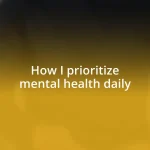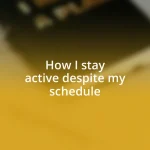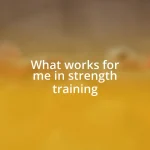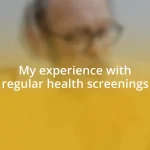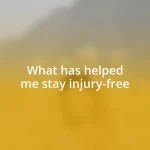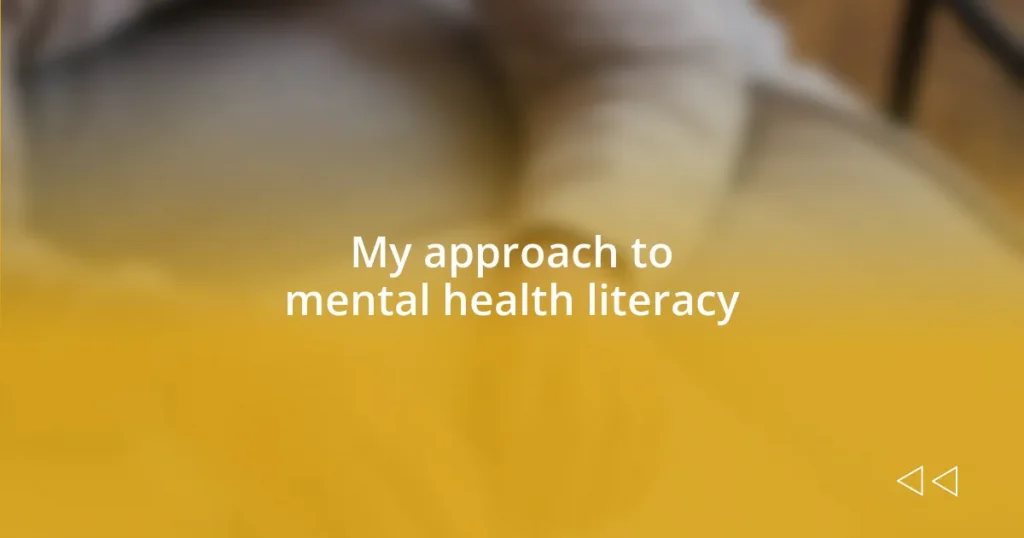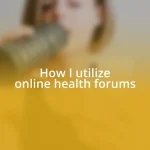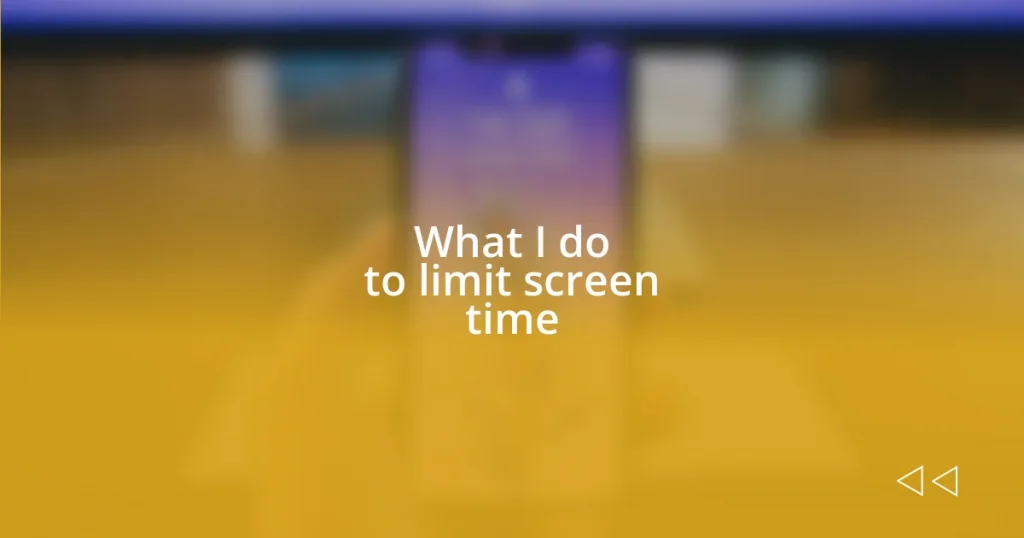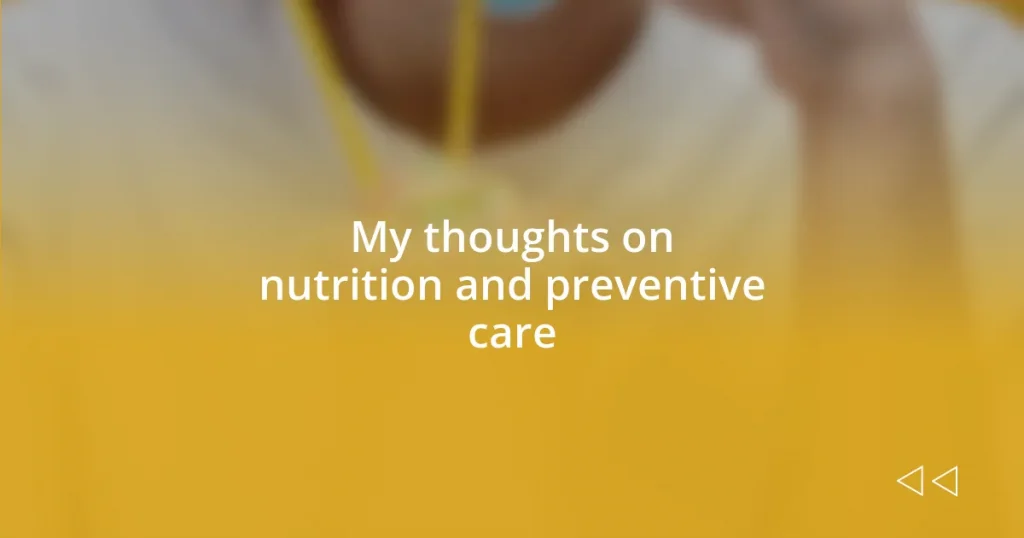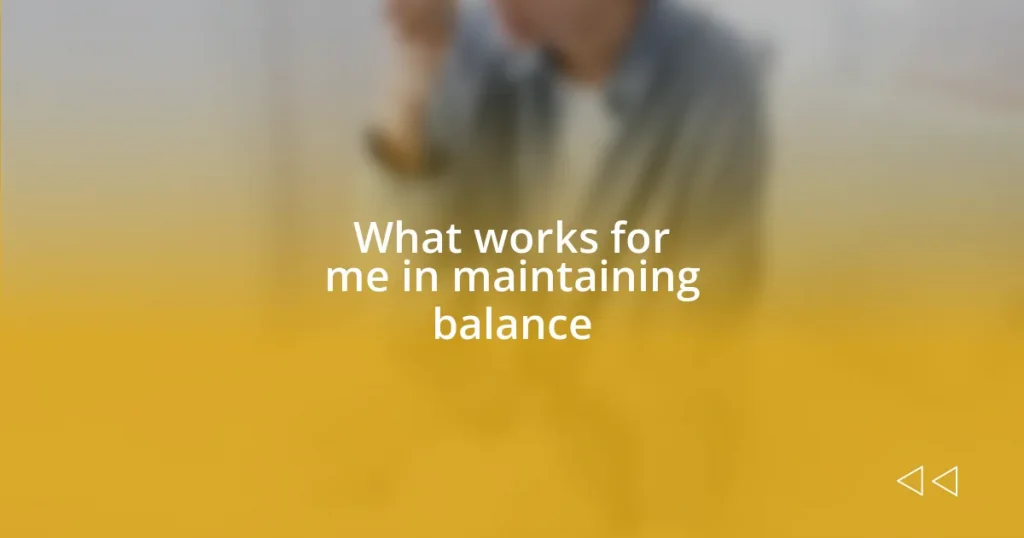Key takeaways:
- Mental health is as essential as physical health, requiring recognition and empathy to support those affected.
- Mental health literacy helps break stigma, promotes openness, and aids in early intervention by recognizing symptoms.
- Effective communication, including active listening and empathy, fosters a supportive environment for discussing mental health.
- Community resources, like workshops and online courses, enhance understanding and create a network of support for mental health issues.

Understanding Mental Health Basics
Understanding mental health begins with recognizing that it’s just as crucial as physical health. I remember the first time I truly grasped this concept; I was sitting in a workshop, and the speaker said, “You wouldn’t ignore a broken leg, so why ignore a troubled mind?” It hit home for me, highlighting the importance of being aware of our mental well-being.
Mental health encompasses a range of conditions, from anxiety and depression to more severe disorders. I think back to a friend who silently struggled with anxiety; it was disheartening to see someone so vibrant dim their light because they felt isolated. Understanding these conditions is key, as it allows us to empathize and offer support, fostering a more compassionate environment.
By prioritizing mental health literacy, we empower ourselves and others to seek help when needed. Have you ever found yourself hesitating to reach out? In my experience, a simple conversation can be a lifeline, reminding us that no one should navigate their mental health journey alone.

Importance of Mental Health Literacy
Mental health literacy plays a pivotal role in breaking down stigma. I recall a time when a colleague opened up about his struggle with depression during a team meeting. Initially, there was a palpable silence, but as I began to share my own experiences, others slowly joined in. It became clear that understanding mental health encouraged openness, fostering a supportive atmosphere where individuals felt safe discussing their challenges.
Recognizing the signs and symptoms of mental health issues is crucial for early intervention. I once had a family member who exhibited subtle changes in behavior—irritability and withdrawal—that I initially attributed to stress. It wasn’t until I learned more about mental health that I understood these could be symptoms of something deeper. Armed with this knowledge, I was able to approach and support them, highlighting the importance of being informed.
Moreover, mental health literacy enhances our ability to distinguish fact from myth. I remember being caught off guard by some common misconceptions about mental illness I had believed for too long. Learning the truth helped me advocate for my friend who was struggling, and it empowered others to challenge their own misconceptions. This process not only uplifted my understanding but sparked vital conversations in my community, bridging gaps in knowledge.
| Benefits of Mental Health Literacy | Examples |
|---|---|
| Promotes Openness | Shared personal stories lead to a supportive environment. |
| Facilitates Early Intervention | Recognizing symptoms enables timely support and treatment. |
| Counters Mental Health Myths | Empowered individuals challenge misconceptions, fostering understanding. |

Utilizing Effective Communication Techniques
Effective communication techniques can truly transform the way we engage with mental health topics. I’ve found that active listening is one of the most impactful skills we can develop. When someone opens up to us, it’s essential to be fully present, not just hearing their words but also understanding their emotions. I remember being on the receiving end of this once; a close friend listened intently to my struggles, without judgment. It was that genuine attention that made me feel seen and validated, reinforcing the importance of truly connecting with others.
Here are some effective communication techniques to consider:
- Active Listening: Focus entirely on the speaker, nodding and responding to show you’re engaged.
- Open-Ended Questions: Encourage deeper discussion by asking questions that require more than a yes or no answer.
- Empathy: Validate the speaker’s feelings by acknowledging their emotions and experiences.
- Non-Verbal Cues: Use body language, eye contact, and facial expressions to convey understanding and support.
- Avoiding Assumptions: Approach conversations without preconceived notions, allowing the speaker to share their own narrative freely.
By applying these techniques, we can create a more supportive and understanding environment that encourages open dialogue about mental health. I’ve seen the difference firsthand, and it’s remarkable how a few simple adjustments in our communication can foster trust and connection.

Resources for Mental Health Education
When it comes to mental health education, one of the most valuable resources I’ve discovered is online courses. I recently took a mental health first aid course, and let me tell you, it was a game changer. Not only did I learn the signs of distress, but I also gained skills to approach someone in need. Wouldn’t it be great if everyone had access to such practical tools? I believe these courses equip people to make a real difference, fostering a more informed and supportive community.
Books are another fantastic avenue for expanding mental health literacy. I found solace and insight in reading memoirs by individuals who shared their mental health journeys. One particular memoir resonated with me deeply; it articulated feelings I’d struggled to express. Isn’t it incredible how someone else’s story can shed light on our own experiences? These narratives can help demystify mental health struggles, making the topic feel more relatable and less isolating.
Furthermore, local community centers often host workshops and support groups focused on mental health awareness. I attended a workshop once that created a safe space for discussion around anxiety and coping mechanisms. It was uplifting to see everyone engage, share their experiences, and leave with coping strategies. Have you ever thought about how sharing even small experiences can create huge ripples of understanding? To me, these community resources are essential in fostering a more empathetic society.

Building a Supportive Community
Building a supportive community is about creating a network where everyone feels safe and valued. I once joined a local group focused on mental health, and it was remarkable to witness how vulnerability fostered connection. People shared their experiences and, in turn, found strength in each other’s stories. Have you ever felt that bond when you realize you’re not alone? It’s a transformative experience.
Our communities thrive when we actively engage in uplifting one another. I remember organizing a small coffee gathering where we discussed our mental health challenges openly. The relief on everyone’s faces as they shared their thoughts was palpable, and it sparked conversations that often go unspoken. Isn’t it fascinating how a simple setting can encourage such openness? Genuine connection cultivates trust, and that trust leads to an increase in mental health literacy.
Additionally, inclusivity is vital in building these safe spaces. I’ve seen how diversity in perspectives enriches conversations, making everyone feel more seen and understood. When we invite varied voices to the table, it fosters an environment where individuals can learn from one another. Reflecting on this, don’t you think that welcoming different experiences can lead to deeper understanding and healing within our communities? It’s this exchange that ultimately strengthens us all.



